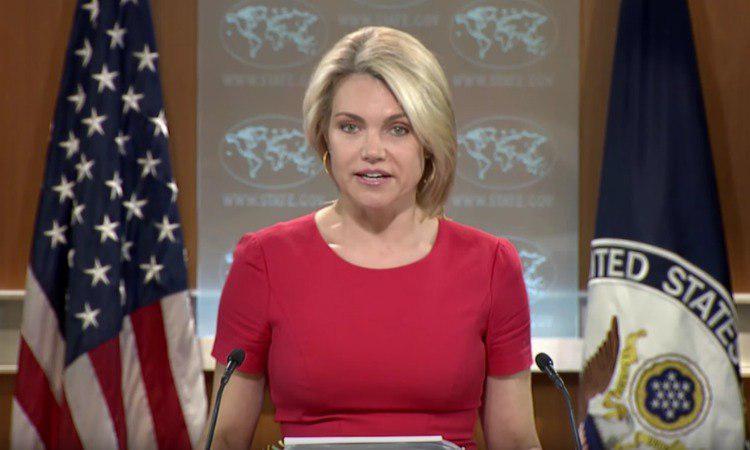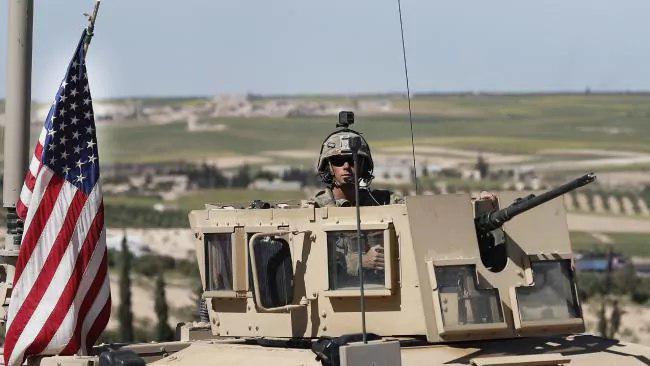WASHINGTON, Aug. 17 (Xinhua) -- The U.S. State Department on Friday said that the fund of some 230 million U.S. dollars targeted to support the stabilization initiative in Syria has been ordered to be redirected, ramping up speculation that it would withdraw from the country.
REDIRECTION
In a statement, State Department spokesperson Heather Nauert said that Secretary of State Mike Pompeo has authorized the Department of State to "redirect approximately $230 million in stabilization funds for Syria which have been under review."
She explained that the fund could be offset by the approximately 300 million U.S. dollars that the Department has elicited since April "in contributions and pledges from Coalition partners to support critical stabilization and early recovery initiatives in areas liberated from ISIS in northeast Syria."
The decision took into account "the President's guidance on the need to increase burden sharing with allies and partners," she said, adding that the State Department will redirect these funds to support "other key foreign policy priorities."
However, she added that "this decision does not represent any lessening of U.S. commitment to our strategic goals in Syria," and it does not affect U.S. humanitarian assistance in the war-torn nation.
"We are prepared to remain in Syria until the enduring defeat of ISIS, and we remain focused on ensuring the withdrawal of Iranian forces and their proxies," she said.
Later on the same day, Nauert said in a teleconference with the media that Pompeo has appointed Jim Jeffrey, U.S. former ambassador to Iraq, to be the Secretary's Representative for Syria Engagement, a new position Pompeo created to work on the Geneva Process.
U.S. former Secretary of State Rex Tillerson announced on Feb. 13 that the United States pledges 200 million U.S. dollars in support of the anti-IS coalition efforts and recovery commitment in Syria.
However, U.S. President Donald Trump reportedly ordered in March a hold on the funds, demanding more information on how the money is being used, and urging other countries to step up to the plate and pay more.
GENEVA PROCESS
Brett McGurk, U.S. special presidential envoy for the Global Coalition to Defeat ISIS, also said in the teleconference that "long-term reconstruction needs are tied very much to the political process in Geneva." "We've made very clear that international reconstruction assistance for Syria will not be coming in until we have a - really an unalterable progress on the Geneva track, moving towards a political transition," said the official.
Nauert also said Pompeo "looks forward to engaging with his counterparts at UN General Assembly on this issue, and also looking for ways to reinvigorate the Geneva process."
President Donald Trump said in March that his country will withdraw its troops in Syria "very soon," at odds with the statement of Pentagon spokesperson Dana White on the same day that "important work remains to guarantee the lasting defeat of these violent extremists" in the Middle East country.
"We'll be coming out of Syria, like, very soon. Let the other people take care of it now," Trump said.
He also noted in April that the United States has spent 7 trillion U.S. dollars in the Middle East in the past 17 years, which has brought "nothing, except death and destruction."
Trump's remarks have triggered speculation of the U.S. possible retreat from Syria.
Despite of Trump's eagerness for a quick retreat, the Pentagon and the U.S. State Department have voiced view that a much longer-term effort is necessary to fully defeat the IS.
The United States has been aiding a military campaign in Syria which had taken back much of the territory once occupied by the militant group. So far, there were around 2,000 U.S. troops remaining in Syria.
Syria has always denounced the U.S. military action in the country as uninvited aggression.


